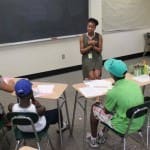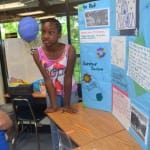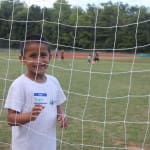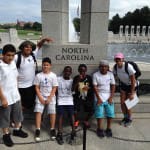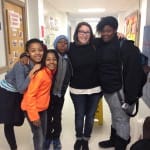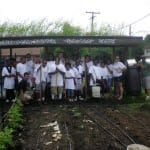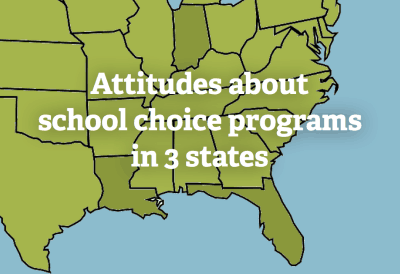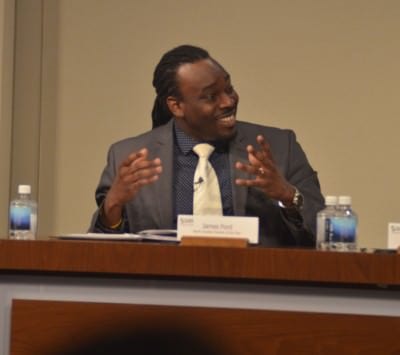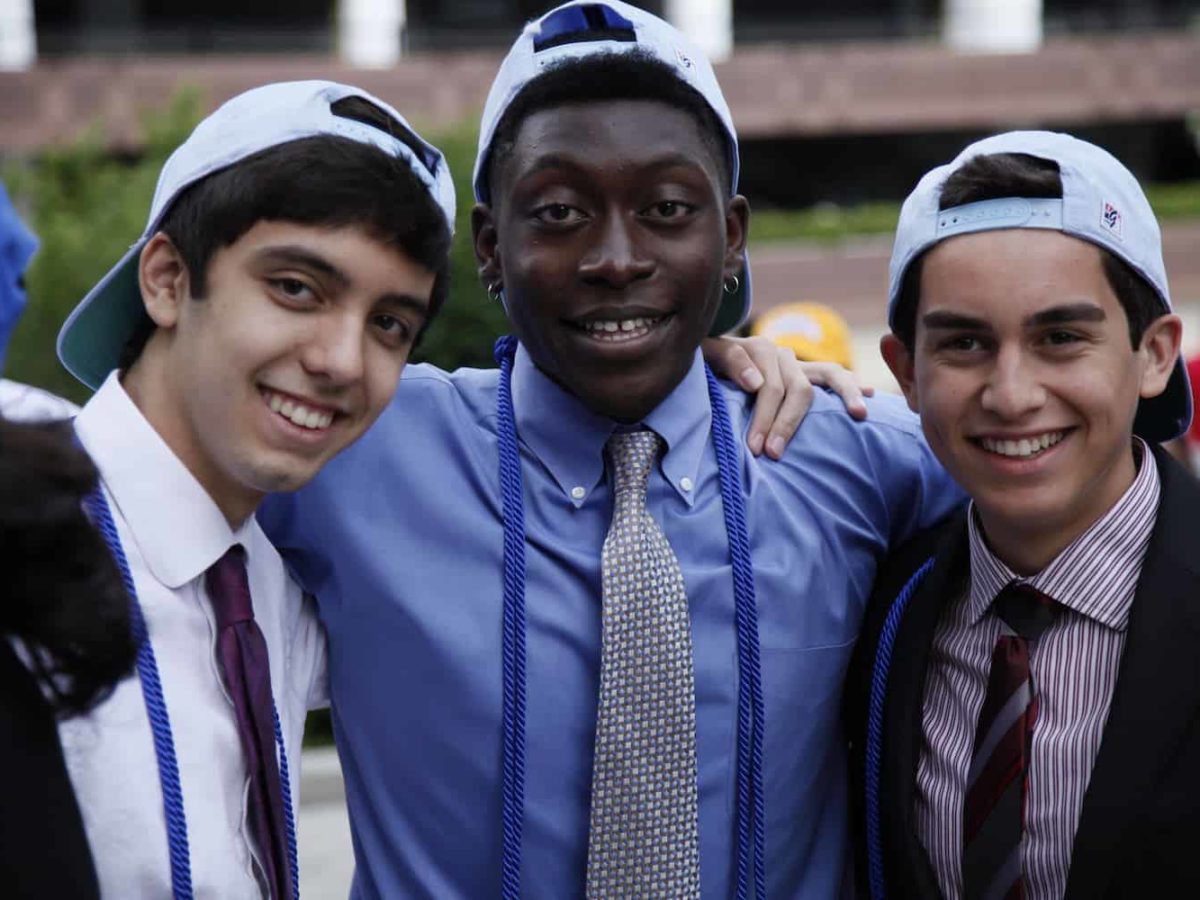
By her own admission, Casey Barr-Rios had an attitude. No one believed in the middle schooler’s dream of becoming an actress, so she kept it to herself, presenting the world with an angry front. The staff at Student U were different. They embraced her dream and helped her explore the steps she needed to take to become an actress. She decided not to pursue a career in acting, but the fact that someone was willing to take her seriously and help her explore the possibilities made all the difference. Today, Barr-Rios is a warm and open individual on track to graduate from N.C. Central University with a degree in psychology. She credits Student U with changing her life.
“Student U has been like a family to me.” – Isabel C., 8th grade
“Discovering your best self” is but one of the values espoused by Student U, the Durham-based nonprofit with a mission to help Durham Public School students develop the necessary academic, social, and emotional skills to succeed in college and beyond. This and the other values — share your brilliance, dream fearlessly, respect yourself and others, energize your community, achieve greatness — are backed up by the achievements of the students, 97 percent of whom in the first class are on their way to graduate from college.1
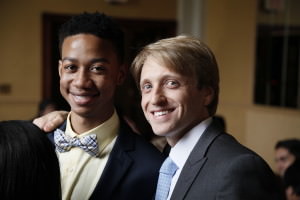
Student U was founded in 2007 by Duke graduate Dan Kimberg and his wife, Amanda. After years of teaching and tutoring, Dan and Amanda recognized a potential for students and the school system that was not yet being realized by other support programs for Durham Public School students. First, while there is a lot of attention paid to helping elementary and high school students, very little is paid to middle school students. Second, students suffer a huge loss in achievement over the summer when school is out. Lastly, without family support at home, academic assistance efforts often fail.
Accordingly, Dan, Amanda, and a team of Durham community leaders designed Student U to serve students starting in middle school and continuing straight through college. “Student U is unique because of the long-term commitment we make to students and their families,” Dan Kimberg said. “It’s a matter of respect and building trust. A short-term initiative does not allow you the time to really know students’ families and to fully understand how best to empower them and their students to own their educational journey.”
“I think Student U inspires me to be my best in school and in the world.”
– Sonya S., 6th grade
Recruitment of rising middle schoolers begins in consultation with Durham elementary school guidance counselors. These counselors seek out students who would be the first in the family to attend college, who qualify for the reduced lunch program, and who are typically performing below grade level. Of those who apply, 50 are chosen by means of a lottery.
Family participation is a crucial ingredient in Student U’s program. To be admitted to the program, families must sign a seven-year contract. They are also encouraged to attend trainings on such subjects as college preparation, health, and finance.
“Our goal is for parents to become involved in Student U in a way that they may not have with their traditional school,” Kimberg said. “They realize they are part of a community that they have helped build.”
The Student U experience begins with a six-week summer academy, during which students engage in project-based, small group instruction. The curriculum is focused on three pillars of student success— literacy, identity development, and social justice. To broaden their horizons, students take weekly field trips to local colleges and community organizations. Teachers build bonds with parents by calling them once a week and writing an end-of-the-year evaluation. By the time summer ends, the students are prepared to return to school.
“Student U is a place to collaborate with friends and teachers and to have fun.”
– Edgar B., 8th grade
During the academic school year, Student U’s services shift to after-school programs conducted at the organization’s headquarters in the historic W.G. Pearson Middle School. Students are provided with a healthy snack (essential, Kimberg says) and set to work on homework assignments under the guidance of paid staff. All students have an individualized plan designed to meet their particular needs. Staff periodically consult with the student’s regular teachers to make sure his or her school work is on track.
Student U seeks to improve not just a student’s academic skills, but social and physical ones as well. Accordingly, Fridays include intramural sports programs to build teamwork. Mondays and Wednesday are devoted to extracurricular clubs ranging from dance to photography. Tuesdays and Thursdays include a program called U Prep, in which students learn about terms such as GPA that are an essential part of getting on a college track.
“We want students to envision themselves at the earliest point as successful college students,” Kimberg said. “We integrate college prep work from the moment they enter onto our campus.”
When students move on to high school, Student U’s program takes a different form. Summer Academy field trips focus on visiting colleges. By their senior year, students will have visited at least 20 colleges and universities outside of North Carolina and 15 within the state. Classes cover a wide diversity of topics ranging from designing shoes to writing screenplays. Rising juniors and seniors have the opportunity to intern with a local nonprofit or business that has agreed to partner with Student U. Internship placements have included Durham Catering Co., the N.C. Museum of Life and Science, and N.C. Central University’s gardening camp for displaced youth.
When students return to their local high schools, Student U recruits advocates within the school — a teacher or guidance counselor — to help guide the students socially, emotionally, and academically. Advocates check in with the students weekly and, if needed, offer daily tutoring. They hold cluster meetings (a convening of all Student U students at a particular school) monthly to ensure that Student U students remain connected to each other during high school.
“I used to be a shy kid. But now, I try new things every day and I’ve become proactive rather than reactive.”
– Francis D., college freshman
Student U’s intensive support is reflected in its college enrollment rates. Of the 40 students who enrolled in 2007 and stayed with the program through high school, 39 are currently enrolled in college. Student U has a full-time college advisor, and recruits mentors within each college to work with students one-on-one.
“Nationwide, only 11 percent of low-income kids who enter college graduate within six years,” Kimberg said. “We think 100 percent of ours will graduate.”
Student U also provides its college students with emergency support funds for everything from purchasing books to paying electric bills for families. “One of the biggest reason students drop out of college is to return home to support a family in crisis by leaving school and getting a job,” Kimberg said. “We don’t want our students to have to make that choice.”
“My most significant growing and learning experiences have occurred at Student U. And, the most important lesson I learned at Student U, which is instilled in every student that goes through this program, is to be the change you wish to see in the world.”
– Dante E., college freshman
A crucial ingredient to Student U’s success is its dedicated staff. Kimberg believes salaried staff tend to be higher quality and stay longer than volunteers. Accordingly, Student U currently pays 12 full-time employees and approximately 150 part-time employees to perform a variety of roles. Most are recruited from local universities — Duke, UNC, and N.C. Central. Once they join Student U, these staff tend to stay. “Student U has never experienced turnover on its full-time staff and over half of its part-time employees return each year,” Kimberg said.
The organization’s performance has won the praise of people like Heidi Carter, chair of the Durham School Board. “Student U is so much more than a nonprofit that provides tutoring and after-school programming,” she said. “Student U focuses on the development of the whole child, supporting their students’ social, emotional, physical, and academic needs. It’s more of a movement than a program, a movement to empower our students to become their best selves, to have goals and dreams, and to make the world a better place.”

